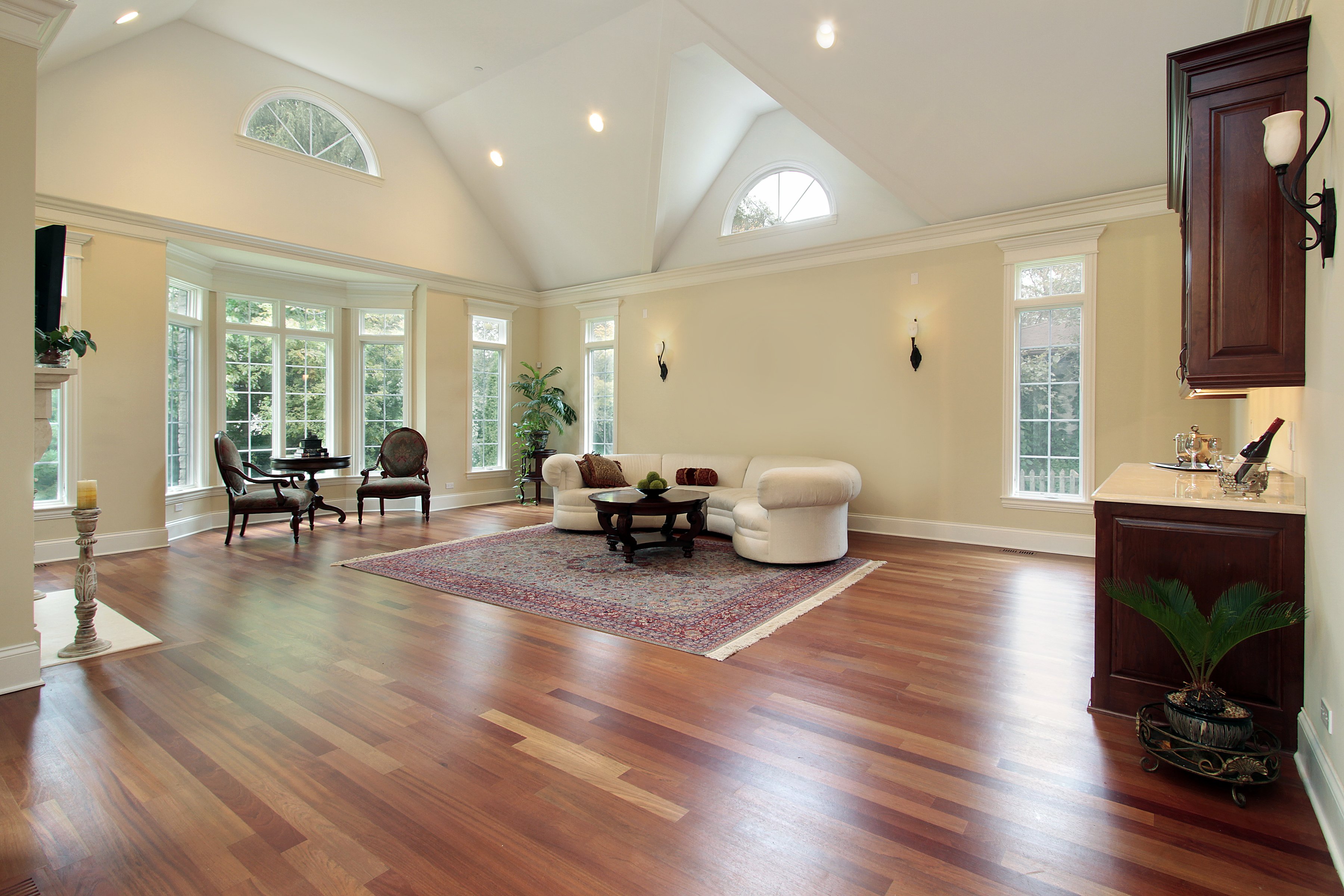
Brazillian cherry is one of the most popular hardwood flooring materials on the market, and for good reason. For starters, it’s a beautiful hardwood with a unique, color, and grain. Secondly, it’s one of the strongest, most durable hardwoods you can purchase, oak included. And, finally, Brazilian cherry is also considered a green building material because it can be sustainably harvested. All these qualities add up to one thing: one of the best hardwood floors you can buy.
Brazilian Cherry: A Hardwood of Many Names and Spellings
Brazillian cherry is more accurately spelled “Brazilian cherry” but more commonly spelled with the double L. Even botanists can’t find unanimous agreement: The tree’s official name could be referred to as Jatoba, Guapinol, or Hymenaea courbaril. Of course by any name, the tree produces the same wood that’s hard and hearty, a universally coveted quality for homeowners and residential flooring. The advantage of knowing the different names comes from researching the hardwood for your residential use. Brazilian cherry is more likely to lead you to home improvement manufacturers that will show you the beautiful finish of its flooring, but it may take you a while to hunt down the raw characteristics of the wood. Conduct a search for “Jatoba,” on the other hand, and you’ll quickly learn that the tree produces wood that is, on average, almost twice as hard as White Oak, but barely half as hard as Brazilian (or Brazilian) Walnut.
What Does Brazilian Cherry Look Like?
Perhaps the biggest draw of this wood is its appearance. It really is one of the most beautiful hardwoods you can purchase. Its color ranges from rich orange to a deep, reddish brown, contrasted by intricate dark grains that cross the wood in straight runs and flowering patterns. And if you think it looks good when you first install it, just wait a few months. Like other varieties of cherry, the color of Brazilian cherry hardwood will deepen and darken with age. It’s one of the few hardwoods that keeps looking better as time passes, rather than things working the other way around.
Ready to start your wood floor?
Find ProsTwice as Strong as Oak
While oak is the gold standard of hardwood flooring, and generally considered to be one of the toughest hardwoods on the market, it doesn’t stand a chance when compared to Brazilian cherry hardwood. The truth is that Brazilian cherry wood, also called jatoba, is almost twice as strong as red oak. That means it is twice as resistant to scratches, scrapes, and dents, as well. On the downside, if you’re a home handyman, it also means you might want to hire a flooring contractor to install it. The denser a hardwood is, the more likely it is that your flooring planks will shift and pull apart over time, especially if not installed correctly. Hiring a flooring contractor to put down your new floor is the best way to insure against bigger flooring problems down the road.
Brazilian Cherry: An Eco-Friendly Hardwood?
A final reason that this wood is so popular for hardwood flooring is the fact that it’s also considered a green building material when harvested in a sustainable manner. A quick caveat, however. Check to make sure your Brazilian cherry wood is being harvested responsibly. Unfortunately, a significant portion of this wood that is sold in the U.S. does not meet green building standards. If you are drawn to this hardwood because of its eco-friendly potential, check to make sure you’re buying wood with a LEED qualification of MR7, designating it as a Certified Sustainably Harvested Wood. If you don’t, there’s a good chance you’re purchasing wood that was illegally culled, meaning you’re actually supporting anti-environmental logging, rather than sustainable practices.
 Concrete Flooring – Solid as a Rock
Concrete Flooring – Solid as a Rock  How to Hide Pesky Carpet Seams
How to Hide Pesky Carpet Seams  Divine Pine Flooring
Divine Pine Flooring  Slate Floors Make for a Great Decor
Slate Floors Make for a Great Decor  Flooring Ideas for Your Home Gym
Flooring Ideas for Your Home Gym 

Does anyone have a suggestion on fake Brazilian cherry looking flooring for a small den/bar area in our home?